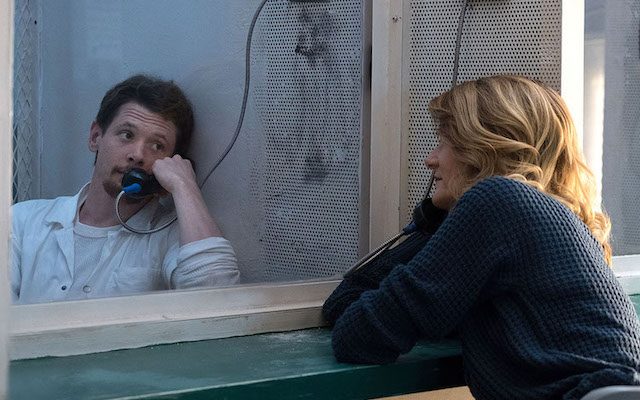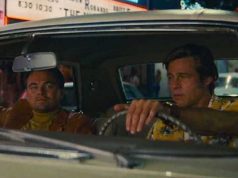
The true story that “Trial by Fire” is based on, told by David Grann in a 2009 New Yorker article, is fascinating and suspenseful, full of twists that make you reexamine your assumptions, but the movie version — directed by bland social crusader Edward Zwick (“The Last Samurai,” “Blood Diamond”) from a screenplay by Geoffrey Fletcher (“Precious”) — waters it down into a generic, maudlin, anti-death-penalty message.
Jack O’Connell, in a dopey, unintentionally comical, “SNL”-level Southern drawl, plays Cameron Todd Willingham, a white-trash Texan accused of setting the 1991 house fire that killed his children. Evidence both circumstantial and forensic makes it seem like a clear-cut case of arson for which Willingham is responsible. Protesting his innocence every step of the way, Willingham is convicted and sentenced to death. His wife, Stacy (Emily Meade), who wasn’t home the morning of the fire, forsakes him, as does everyone else.
What makes the New Yorker article so compelling — and what the movie totally fumbles — are the revelations about how the evidence was misinterpreted because of faulty but unquestioned forensic practices and class-based prejudices against the defendant. The movie seems less interested in that aspect than in making this a dry death-row drama built around a laughable lead performance. Willingham is eventually aided by Elizabeth Gilbert (Laura Dern), a playwright-turned-activist for whom this case becomes an obsession. (There is, of course, the obligatory scene where Elizabeth is accused of neglecting her family for her work.) It’s satisfying to watch Laura Dern go around telling various men (police, investigators, attorneys, etc.) how they screwed up, but Zwick, Fletcher, and O’Connell all should have been on her route too.
C (2 hrs., 7 min.; )





